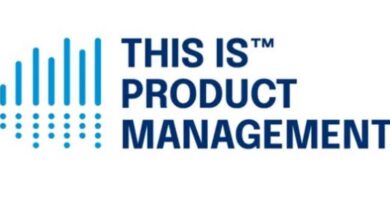Sophia Sun ’18 | Pomona College in Claremont, California

Major: Linguistics & Cognitive Science
Profession: Senior Product Manager in Tech
Hometown: Sunnyvale, California
What are you doing now?
I’m a senior product manager at Kajabi, an all-in-one platform for creators and experts to turn their passions and expertise into successful online businesses. Previously, at Microsoft, I earned patents in augmented reality (AR) and AI and built AR-powered remote collaboration tools.
Outside work, I’ve interviewed over 100 Asian American creators, artists, entrepreneurs, thought leaders and activists on my podcast bamboo & glass.
How did you get there?
While my best friend and I were choosing classes, she encouraged me to take a class with her Critical Inquiry Seminar professor, Jack Abecassis, professor of Romance languages and literatures.
I ended up loving Professor Abecassis’ Film, Literature and Cognitive Science class so much that I pursued an independent study with him the following semester. We co-authored a paper about the possibilities and limitations of narrative virtual reality (VR) film.
While doing research for the paper, I found an NSF-funded AR/VR research program at USC’s Institute for Creative Technologies Mixed Reality Lab. Professor Abecassis joked that he would be offended if I didn’t ask him for a recommendation letter for the program. That research internship led to my product management internship at Microsoft, which led to my full-time job as a product manager of Microsoft HoloLens (Microsoft’s AR headset).
As a product manager at Microsoft, I worked with scientists and engineers to build prototypes that showcase how AR/VR can revolutionize healthcare, media, education, interior design, fashion, architecture, hospitality, marketing, manufacturing, aerospace and many other sectors. I also worked on Remote Assist, an AR-powered video-calling tool. Remote Assist enables surgeons and other healthcare workers to collaborate effectively and safely, and this was especially true during the pandemic.
Now, I’m a senior product manager at Kajabi. As a creator, I joined Kajabi because of the admirable creators and experts that Kajabi serves. I build AI-powered tools to help creators and experts earn a predictable income and connect with learners seeking their expertise.
How did Pomona prepare you?
Pomona’s culture of intellectual curiosity helped me build confidence to learn new things quickly. I believe that confidence comes not from knowing everything but from knowing that you can figure everything out. My professors and peers celebrated “being a beginner” and trying classes you’re interested in, even if you have no prior knowledge. Exploring vastly different disciplines taught me how to absorb new material quickly. I apply this adaptability and grit to my work every day.
Professors at Pomona expanded my sources of inspiration and fulfillment. Whenever I feel uninspired, I think back to the awe and wonder I felt while learning at Pomona. These memories motivate me to pursue activities and get to know people who inspire me.
Pomona’s rigorous courses and dedicated professors helped me refine my written, verbal and visual communication skills. For example, my Basic Acting professor provided one-on-one coaching on my commencement speech, and Pomona’s small discussion-based classes pushed me to articulate my thoughts on the spot.
The student body at Pomona showed me the importance of advocacy. My peers put their values into action and effectively rallied professors, staff and peers to advocate on behalf of others.
Where do you see yourself in five years?
I’ll probably continue to be a product manager. A product manager’s responsibility is to deliver business impact by empowering your team to solve important problems as efficiently as possible. For me, the day-to-day work is engaging, the challenges are energizing and the opportunity to create scalable solutions makes the hard days worthwhile.
The deeper reason I enjoy being a product manager is that it makes me better at life and relationships outside work. While many jobs make you better at life outside work, product management is my preferred path for practicing skills like negotiation, influencing without authority, having hard conversations and designing a work environment that helps others succeed.
Any advice for current or prospective students?
- Any passion can be “practical” if you tell the right story and proactively explain the transferable skills you’ve built. Throughout college and throughout my tech career, I’ve been able to pivot between seemingly unrelated roles because I figured out how to connect the dots in a way that resonated with my interviewer.
- Actively reflect on the intersections of what you’re learning. Just because you’re taking classes in four drastically different departments does not mean you’re automatically internalizing their intersections. And when you do internalize those intersections, that can lead to your most creative and unique breakthroughs.
- Take care of your mental and physical health. Your mental state is a filter on the truth. When your mental state is good, challenges feel invigorating, and problems feel solvable. When your mental state is bad, even simple tasks feel impossible. Rest, exercise and time with loved ones change the tint of the filter.
- Learn to manage your energy, not just your time. When you have more energy (i.e., more focus, optimism and determination), you need less time to get things done.
- Plan ahead for internships and full-time jobs, even if it means postponing studying abroad or taking fewer classes. Some internships open in August and close by October, so do your research as early as possible, and give yourself the opportunity to make informed decisions.
- Practice asking for help. It’s one of the most important and transferable skills you’ll need. Confidence comes not from knowing everything but from knowing that you can figure everything out, and asking for help is a critical tool for figuring things out. In my experience, Pomona is a more forgiving and supportive environment than most workplaces, which makes it a great place to practice asking for help.
- Pay attention to emails about on- and off-campus opportunities. I got to see musicals, attend talks and participate in so many fun activities simply because I knew to sign up!
- Know that you are not behind. Life is not linear, and the only way for you to be behind someone is if you’re meant to walk the exact same path as them.



